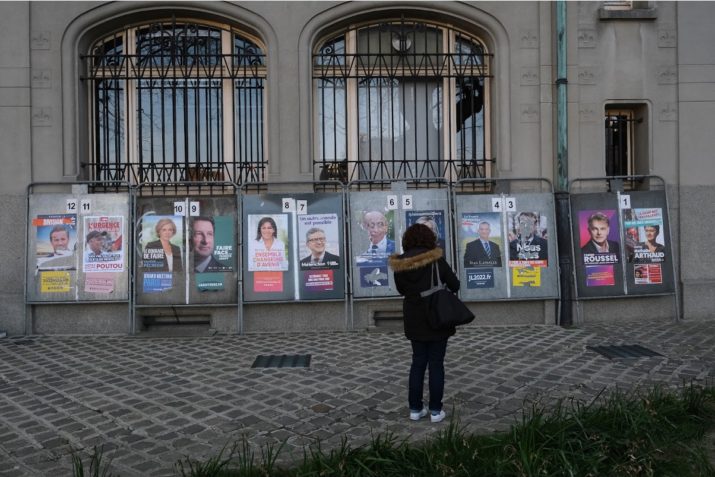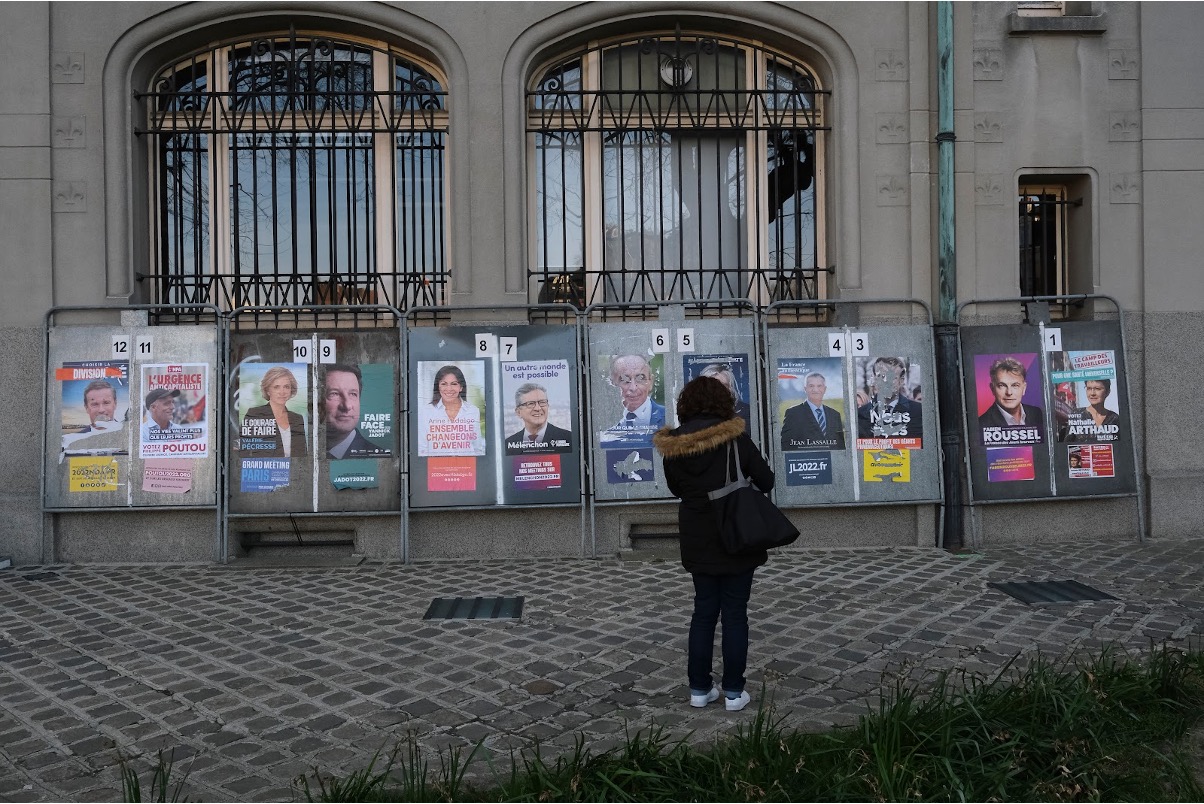

This is part of our special feature, Business in Politics and Society.
In our forthcoming edited book, Business and Populism: The Odd Couple (Oxford University Press), we analyze a fundamental tension in the relationship between business and populists.¹ Right-wing populists have become increasingly influential across Europe (Berman 2021). They are in government in Hungary and Poland and have served as junior coalition partners in the governments of several countries, including Norway, Austria, Finland, and Estonia. Even in countries where right-wing populists have not entered government, they have been influential in other ways. In Denmark, they have propped up the government. In France, they have become increasingly important political competitors to other parties, as seen in the parliamentary election of 2022 when Marine Le Pen made it into the second round of the presidential election and her party, the Rassemblement National, achieved big gains.The rise of populist parties such as the UK Independence Party and the Brexit Party in the United Kingdom had a significant impact on the Brexit vote and on the transformation of the Conservative Party after the referendum. Despite the importance of populism to contemporary politics, there has still been little research on the relationship between business and populism.
In our forthcoming book we ask how it is that right-wing populist parties that express their general support for capitalism in its neoliberal form and for deregulated markets, low taxes and a small state direct much of their rhetoric against business, which also supports these policies. Right-wing populists draw their electoral support not from these common neoliberal policies but from a range of policies which they present to ‘the people’ as solutions to long-running economic and cultural issues. These include the use of tariffs to protect home industry, the undermining of multilateral trade agreements, the reduction of immigration and, increasingly, initiatives inside the EU that are aimed at the EU institutions themselves and rules imposed from outside the nation-state. Populists claim to represent ‘the will of the people’ against an elite class which they assert have ignored these concerns. They resort to demotic language, aggressive nationalist symbolism and ritual displays of national identity to authenticate their claims.
How does business respond to this challenge, and what does this tell us about the power of business in situations of noisy populist politics? In the book, our contributors explore these questions in the context of a wide range of countries across Europe and beyond (including chapters on Brazil, the United States, India and the Philippines). The chapters examine the relationship between right-wing populists and business in various countries and focus on key issues such as climate change, international taxation, trading rules and the role of business associations. Together these chapters seek to answer the question: what is business doing in response to the range and variety of populist threats? To analyze these responses, we extend Hirschman’s (1970) classic distinction between exit, voice and loyalty as possible responses to adverse developments within organizations or markets (Feldmann and Morgan 2022). How do these categories, modified in various ways, help us understand the relationship between populism and business?
Exit strategies in the face of populist challenges
Firstly, exit is a common market-based response to changing conditions. It refers to the decision by a firm to disinvest from a given market. In broad terms, globalization facilitates both partial and full exit as it is relatively easy to find locations which will welcome foreign direct investment (FDI). Multinationals are used to the process of reorganizing their supply chains in response to instability, shocks or evolving economic conditions. What sort of threat from populist governments might induce business to exit a particular country? One of the clearest examples relates to the impact of Brexit. Car manufacturing in the UK has been particularly dependent on FDI from Japan, Germany, India and the US. Foreign investors had relied on easy access to EU-based supply chains and the EU car market, both of which have been fundamentally damaged by Brexit and its aftermath. The responses of foreign multinational corporations (MNCs) to Brexit have revealed car manufacturers’ willingness to exit even though relocation into EU member states will be costly and slow. Other types of MNCs based around professional services and finance have also partially exited the UK and established themselves in EU countries to continue trading there under EU regulations. Multinationals regularly change location, and whilst the uncertainty generated by populist governments makes planning difficult, large firms are equipped with multiple resources to exit if necessary.
On the other hand, in some cases companies may only threaten to exit to make populist governments change policies before the potential exit actually takes place. In the case of manufacturing, this can take several years. By strategically announcing exit plans or announcing that there is a risk of exit, multinationals may also aim to bring their home country’s government into the argument using diplomatic and other channels. Warner Bros Discovery, the owners of the Polish TV channel TVN, did this as a way of resisting the Polish ‘Lex TVN’, which would have led to the end of TVN (one of most significant sources of critical media coverage of the populist Law and Justice government) in its current form. The Law and Justice government supported the law, and the Polish parliament passed it, but ultimately President Andrzej Duda vetoed it. Exit can be partial or temporary. One of the key advantages of partial exit is that it offers firms greater flexibility to exit completely in the future or to re-enter the market if the situation improves.
Exit (both temporary and partial) is easier in financial services, where there are smaller fixed costs, than in the manufacturing sector. It is also easier when appropriate expertise is available (as there was after Brexit when various firms moved from London to one of the main EU centers for financial markets like Frankfurt, Amsterdam, and Paris). For most smaller firms that rely heavily on local or national markets or key factors of production within a given country, complete exit is not an option. However, following Brexit, even relatively small UK firms have found that they might need a subsidiary in an EU country to sell in that market.
Coerced exit is increasingly important under populism. Exit can be forced by policy initiatives pursued by populist governments with a strong nationalist agenda that justifies intervention at the level of individual foreign businesses, as in the case of the above-mentioned Lex TVN in Poland. Similarly, in Hungary, overseas banks and their lending policies, often in foreign currencies, were blamed for the deep impact of the global financial crisis on the Hungarian economy. Viktor Orbán’s government effectively sought to use legislation to stop them from operating profitably, leading many banks to sell out to local owners which were more directly under the control of the government (Johnson and Barnes 2015).
Voice options in response to populist challenges
Hirschman (1970) identifies voice as an alternative to exit. He states that ‘voice is here defined as any attempt at all to change, rather than to escape from, an objectionable state of affairs’ (Hirschman 1970: 30). We distinguish between two types of voice: loud voice (strong and public opposition to the populists) and soft voice (attempts to influence populists and modify their agendas behind the scenes). We argue that the decision whether to exercise voice in the face of populism involves two considerations. Firstly, business needs to assess whether the issue of concern is so important that voice should be exercised. Secondly, given the challenges of populist mobilization, it needs to decide how voice should be exercised. Given that exercising loud voice is generally costly and the chances of success are uncertain, this is a risky strategy which could alienate both the populists and their supporters. That being said, attempts to influence the populists quietly behind the scenes using soft voice may not be effective, especially as many standard channels have been closed by populist governments. For companies, such decisions are complicated by the fact that populists frequently carry a dual agenda that is both negative and positive for corporations. On the one hand, there is a commitment to certain neoliberal policies on regulation and taxes, and on the other hand, there is an agenda for more overt use of the state to protect home-based industry and home-based jobs using tariffs, excluding migrant labor and expanding state expenditure to rebuild public infrastructure.
Voice can be exercised by individual businesses (or even individual business executives) or collectively by business or trade associations advancing more widely shared concerns. The traditional type of business engagement, notably as part of individual consultations or activities organized by business associations, is based on ‘soft voice’. This ties in with the general business preference for quiet politics, soft voice, and network governance (Culpepper 2011; Feldmann and Morgan 2022). The noisy politics that populism creates tends to reduce the effectiveness of business lobbying, as politicians are less likely to defer to business under the intense glare of the media and a highly engaged electorate. Populists may attack business as a whole or particular sectors or firms, blaming them as part of the establishment for economic decline and cultural tensions, for example, as happened during the Brexit process (Anderson 2019). Populist governments rarely enable the conditions for quiet politics to emerge as their mobilisation of their supporters thrives on noise, conflict and controversy.
Loud voice, by contrast, requires active involvement in noisy politics and challenging populists outright. This strategy raises several challenges for business. Firstly, the exercise of business influence under conditions of noisy politics may not succeed, especially if it is perceived as self-serving. Secondly, such interventions are costly and risky. As our cases reveal, whilst a small number of business executives may choose to speak out, loud voice is rare. Some of the most powerful examples of such comprehensive condemnation have been researched by Daniel Kinderman. In his discussion of Germany, he shows that the historical legacies of the complicity of business with the rise of Nazism remain potent and have led many business associations to oppose the Alternative for Germany (AfD) party to keep it out of government (see Kinderman 2021). Similarly, Kinderman’s research for our book shows that in Switzerland, where business has faced noisy challenges from populists over migration and citizenship in referenda, Swiss businesses have developed tactics and campaign strategies that have helped to defeat populist initiatives.
Rather than wholesale condemnation of populists in government, the cases in our book reveal that most businesses and business associations pick their battles very carefully and only use voice when they face significant challenges. In negotiations over Brexit, business associations have focused on specific issues such as the Northern Ireland Protocol or maintaining a smooth flow of traffic at UK ports, rather than the principle of Brexit per se. Whether the exercise of voice is loud or soft depends on three things: the strength of the threat felt by business; the policies pursued by populists that support business and therefore offset the negative policies; and the overall strength of the populists. The more embedded populists are in government, the more dangerous it is for business to voice opposition as governments have many ways to retaliate.
Loyalty as a response to populism
We conceptualize loyalty as an active choice of whether or not to show support to the populist government. We distinguish between two forms of loyalty: implicit loyalty (lack of opposition) and explicit loyalty (public endorsement). Implicit loyalty is very common, especially when populist rule is entrenched. If voice is too costly or risky and if exit is not a viable option, then implicit loyalty is likely to be the default strategy. It is often an uneventful strategy in that it simply entails that businesses keep their heads down and avoid getting involved in political controversies. Implicit loyalty is the preferred strategy of many firms, including firms that are critical of the populist agenda, but unwilling or unable to challenge it, and firms that are more genuine supporters (either for normative or instrumental reasons), but nevertheless prefer not to get actively involved in noisy politics, given the high cost and the risk of antagonizing other groups in society. Like exit, loyalty can be coerced: populist leaders can threaten to damage businesses economically by withdrawing licences or by state intervention. Where populists have undermined the independence of the legal authorities by placing their own nominees in crucial positions, threats to unleash these forces on disloyal companies can coerce loyalty. Where the security apparatus of a state has been similarly suborned, information that has been secretly obtained can be stealthily released to undermine the reputation of a company or individual.
Explicit loyalty is based on a greater public commitment to populism by business. As such, it relies on a greater investment of time and resources and is associated with the general risks of involvement in noisy politics, especially in that it can backfire or alienate influential groups. For these reasons, explicit loyalty tends to be adopted by businesses which are normatively committed to the populist agenda. In our cases, we saw several situations where business executives were ideologically committed to ideas advanced by populists, as in the case of some prominent business leaders who advocated for Brexit in the United Kingdom, like Lord Bamford of JCB or Tim Martin of Wetherspoons (Feldmann and Morgan 2021). Normative commitments may also reflect a deep connection between business and right-wing populist government, as in the case of capitalists promoted by Orbán to run state-supported businesses. In many cases, they had received such businesses on favorable terms in return for supporting the illiberal policies of the populists based on a Weberian prebendalist logic, in which property rights are conditional on regime support (Szelényi 2016). More generally, when business expects populist governments to endure, maintaining good relations with the regime is strategically important.
Our book demonstrates the importance of considering the relationship between populism and business, a topic that has received very limited attention in the existing literature. Businesses are important economic and political actors, and it is important to understand their role in resisting or underpinning populist rule. Whilst entrenched populist rule may lead to coerced exit or coerced loyalty by business, one of the most important lessons of our volume is that business has agency in these processes. It has a choice in terms of how to mitigate the risks caused by populists. Clearly those choices are constrained and associated with economic and political costs, and our volume shows why some kinds of firms are likely to adopt particular strategies.
The costs of engaging are typically lower when populists are not yet in government, but it becomes more costly for business to engage in opposition once populists control key levers of power. But when populists are not yet in power, why should business protest about risks arising from populism? Our book shows that it is only in exceptional circumstances, such as the German historical legacy of Nazi rule, that business is likely to make a pre-emptive effort to stall the progress of populist parties. Indeed, it is more likely that some businesses will support populists in their early stages because of the benefits which they foresee from their policies, such as lower taxes, deregulation or less stringent environmental standards, especially if public support for populists is increasing. Once populists come to power, however, their potentially negative impact on business tends to become clearer, but by this time it is more difficult for business to oppose them even if they want to.
Business rarely mounts high-profile loud voice challenges to right-wing populism. Their main concern remains sustaining their own business model. If this can be achieved by being quiet and loyal to populists and thereby minimizing the associated risks, then most of the time, business will do so. Our cases show that right-wing populists generally have no problem with capitalism per se or even with versions of neoliberalism that seek to reduce individual and corporate taxes, minimize state regulation, maximize market forces, cut back on the welfare state, privatise many of its functions or reinforce anti-trade union legislation. Not surprisingly, therefore, most businesses remain passive in their response to the rise of right-wing populism no matter what social and economic risks are being generated, hoping that they can live with the uncertainty and potential conflict whilst benefiting from the more business-friendly elements of populism. Only when their interests are directly threatened may they resort to more activist tactics even though by then it may well be too late.
Magnus Feldmann is a Senior Lecturer in Politics in the School of Sociology, Politics and International Studies, University of Bristol, United Kingdom. His current research focuses on contemporary capitalism, business and politics, social democracy, and the rise of populism.
Glenn Morgan is Honorary Professor in the School of Management, University of Bristol. His current research interests focus on business elites and business power in the age of populism.
References
Anderson, Iain. (2019). F**k Business: The Business of Brexit. London: Biteback.
Berman, Sheri (2021), ‘The Causes of Populism in the West’, Annual Review of Political Science 24, 71-88.
Culpepper, Pepper D. (2011). Quiet Politics and Business Power: Corporate Control in Europe and Japan. Cambridge: Cambridge University Press.
Feldmann, Magnus and Morgan, Glenn (2021), ‘Brexit and British business elites: business power and noisy politics’, Politics & Society 49: 1, 107-131.
Feldmann, Magnus and Morgan, Glenn (2022), ‘Business elites and populism: understanding business responses’, New Political Economy 27: 2, 347-359
Hirschman, Albert O. (1970) Exit, Voice and Loyalty Cambridge, Mass.; Harvard University Press.
Johnson, Juliet and Barnes, Andrew (2015) Financial nationalism and its international enablers: The Hungarian experience, Review of International Political Economy, 22:3, 535-569.
Kinderman, Daniel (2021), German Business Mobilization against Right-Wing Populism Politics & Society 49 (4), 489-516.
Szelényi, Iván (2016). Weber’s theory of domination and post-communist capitalisms, Theory and Society 45, 1-24.
¹ This article draws on our introduction “Business and Populism: The Political Economy of the ‘odd couple,’” which is the first chapter of the book. We also draw on the contributions of our colleagues who have written other chapters in the book. We have learnt much from their work and from our collaboration.
Published on November 2, 2022.




